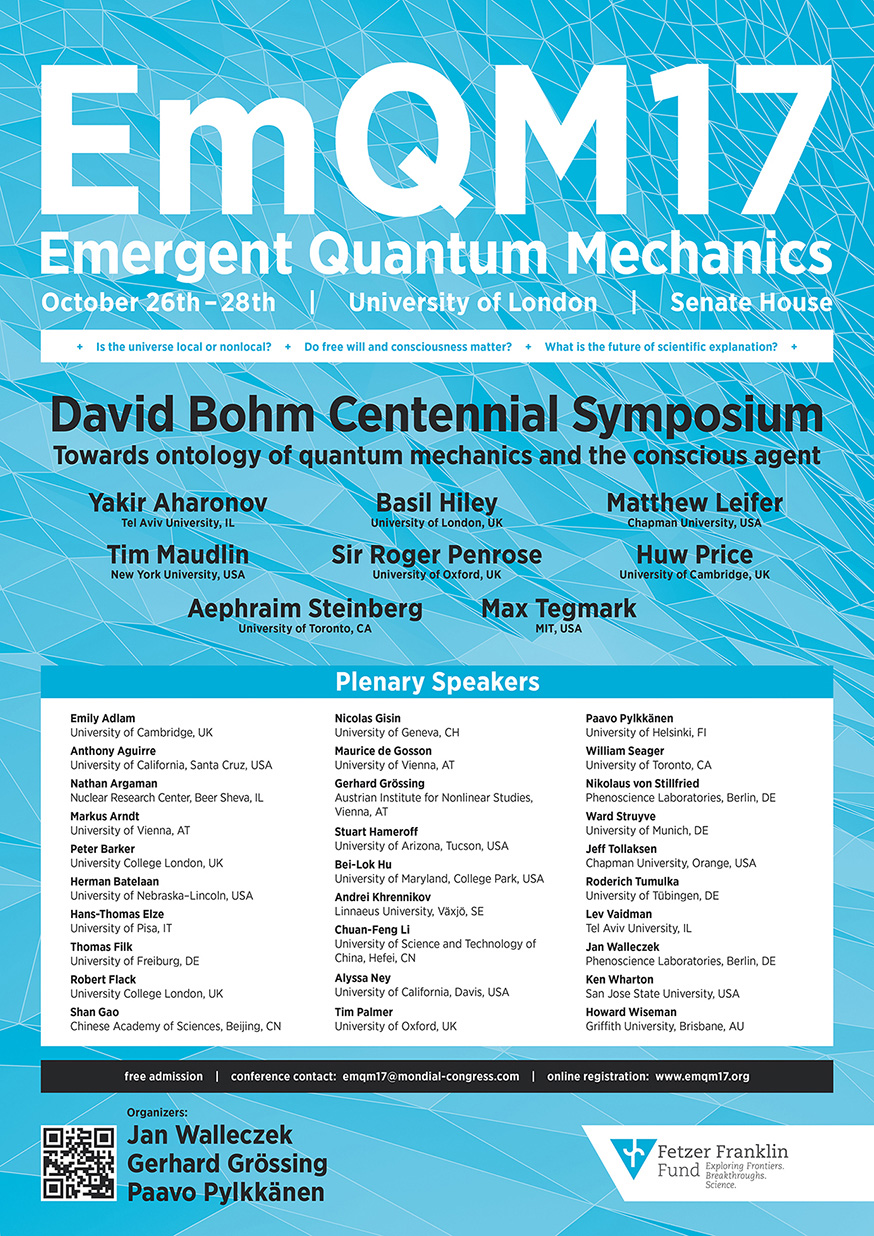William Sulis
Towards Completing Quantum Mechanics: The Process Algebra Approach
Bohm’s theory provides a realist interpretation of quantum mechanics but at the price of an extreme non-locality in the form of the quantum potential. The Process Algebra (PA) approach appears to provide a realist completion of quantum mechanics with only local information propagation. The PA approach is based upon the process theory of Whitehead together with ideas from complex systems theory, emergence and game theory [1, 2, 3]. The PA model proposes a discrete quantum realm in which transient fundamental informational entities (akin to Whitehead’s actual occasions) are generated by processes, and fundamental particles and fields are emergent from these entities [2]. These fundamental entities are assigned definite values of selected (but not all) properties by their generating process. The model is contextual, with an emergent non-Kolmogorov probability structure agreeing with that of non-relativistic quantum mechanics (NRQM) to a very high degree of accuracy [3] .The PA possesses 9 distinct operations for combining processes describing independent, interacting and entangled processes (with a representation as combinatorial games) [3, 5]. The PA model is ontological, and links to NRQM through two set valued maps: the Process Covering Map and the Configuration Space Process Covering Map. NRQM arises as an emergent, effective, computational theory under particular asymptotic limits, showing that the PA provides a true completion of NRQM, not merely a reinterpretation. The PA model is compatible with all current hidden variable and contextual constraints. The model has been applied successfully to NRQM and to a semiclassical version of QED [4, 6, 7].
References:
1. Sulis, W. (2012) Causal Tapestries for Psychology and Physics, Nonlinear dynamics, psychology, and life science. 16(2), 113-136
2. Sulis, W. (2014) A Process Model of Quantum Mechanics, Journal of Modern Physics. DOI: 10.4236/jmp.2014.516176
3. Sulis, W. (2014) A Process Algebra Model of Non-Relativistic Quantum Mechanics. Ph. D. Thesis. University of Waterloo.
4. Sulis, W. (2016) A Process Algebra Model of QED. Journal of Physics: Conference Series Vol 701 (1) 012032
5. Sulis, W. (2017) Completing Quantum Mechanics. In K. Sienicki, Quantum Mechanics Interpretations. Open Academic Press 350-421
6. Sulis, W, (2017) A Process Algebra Approach to Quantum Electrodynamics: Physics from the Top Up. In: R. Martinez (ed.) Complex Systems: Theory and Applications. Nova Publishing
7. Sulis, W. (2017) A Process Algebra Approach to Quantum Electrodynamics. International Journal of Theoretical Physics. DOI 10.1007/s10773-017-3366-y


